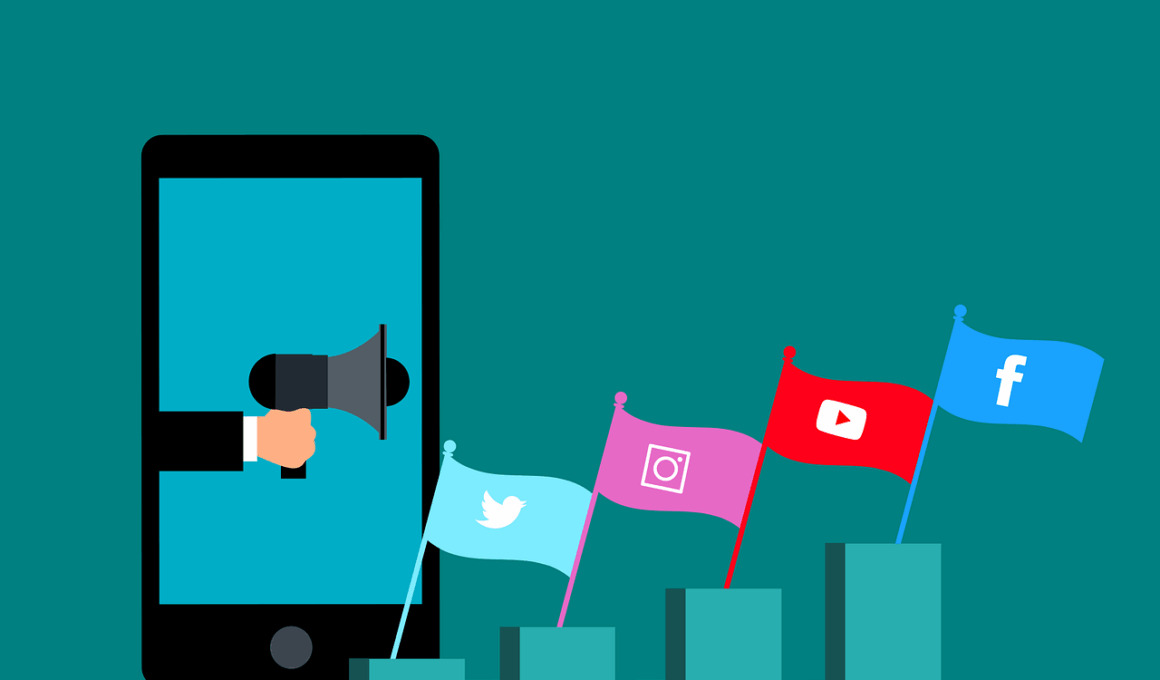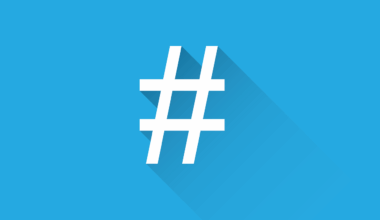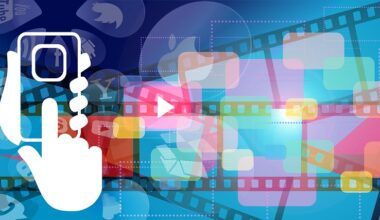The Future of Social Media Tools in Event Promotion
In recent years, social media has transformed event promotion, making it more dynamic and engaging than before. With a plethora of platforms available, event organizers can reach broader audiences instantly. Despite the myriad of options, choosing the right social media tool plays a crucial role in the success of promotion strategies. Leveraging tools such as scheduling applications, analytics software, and content creation platforms ensures that promotions are effective. For instance, platforms like Facebook and Instagram allow for targeted advertising that can reach specific demographics. This level of audience segmentation can significantly increase the conversion rates for events. Additionally, the rise of video content has changed how events are promoted. Live streaming and stories capture real-time audience engagement, allowing potential attendees to connect better with the event. Social media also provides valuable insights through analytics tools. These insights help organizers understand what strategies yield results. Utilizing social media effectively cultivates a community around the event. Overall, the future of social media tools in event promotion appears bright, filled with opportunities for innovation and increased attendance.
Furthermore, social media algorithms are continuously evolving, shaping how promotional content is distributed and viewed. Understanding these changes is essential for event organizers. Staying up-to-date with algorithm adjustments helps ensure that promotional efforts reach the intended audience. An effective way to navigate these challenges is by utilizing platforms that keep track of algorithm changes and recommend best practices. Tools like Hootsuite and Buffer assist in scheduling posts during optimal engagement times. Regularly analyzing performance metrics optimizes future campaigns. Integrating user-generated content strengthens credibility and trust among potential attendees, leading to a more robust promotional strategy. Additionally, engaging with followers through comments and messages fosters a sense of community surrounding the event. This connection often translates into higher attendance, as individuals feel a personal bond with the event. Social media contests and giveaways can further enhance visibility and engagement. These strategies motivate users to share the event within their networks, extending its reach significantly. Creative visual content plays a crucial role in capturing attention, from eye-catching graphics to captivating videos. As technology progresses, embracing innovative social media tools is vital for thriving in the competitive event promotion landscape.
Content creation tools are indispensable for crafting engaging promotional material. Designs need to stand out amongst the saturation of social media feeds, making creativity a key component. Platforms like Canva or Adobe Spark enable users to create stunning visuals tailored to their event’s theme. These tools offer user-friendly interfaces and a myriad of templates that simplify the design process. Equally, quality video content is a necessity in current promotions, with tools like Animoto allowing for quick video creation. Engaging video snippets or teasers can significantly influence attendance rates by creating anticipation among potential attendees. Furthermore, mobile optimization must not be overlooked. Most social media interactions are conducted on mobile devices, so ensuring content is mobile-friendly is critical. A seamless user experience can dramatically boost engagement and conversions. Emoji usage, effective hashtags, and concise messaging effectively communicate event details and evoke excitement. Social listening tools, such as Mention or Brand24, allow organizers to monitor discussions surrounding the event. By understanding attendee sentiments, adjustments can be made to promotional strategies. The future of event promotion relies heavily on adapting to changing trends and exploring new tools that enhance outreach and engagement.
Leveraging Influencer Marketing
Another emerging trend within social media event promotion is influencer marketing. Partnering with influencers can dramatically expand visibility and credibility. Influencers have dedicated followings that trust their recommendations, making them powerful allies in promoting events. Selecting the right influencer who aligns with the event’s target audience is crucial. This strategy not only helps in wider reach but also in conveying authentic endorsements. Moreover, influencers can create unique content that resonates with their followers, enhancing interest in the event. Attendees are more likely to engage if they feel a personal connection with someone they admire. Events such as meet-and-greets with influencers can further elevate attendance. To facilitate successful collaborations, clear communication and established goals should be agreed upon beforehand. Utilizing performance tracking tools will help measure the effectiveness of influencer partnerships. The analytics derived from these collaborations can inform future decisions in event promotion. As events continue to evolve, so too will the need for innovative influencer strategies. This approach, combined with technology advancements, positions event organizers well for future challenges. Embracing these changes is essential for maximizing promotional efforts within competitive markets.
Additionally, gamification is becoming an increasingly popular method for engaging audiences before, during, and after events. Implementing games or challenges can create buzz on social media, encouraging attendees to participate actively. Tools that allow for interactive experiences, such as quizzes or contests, can enhance participant engagement. For instance, event organizers may use platforms like Kahoot! to create interactive quizzes related to the event. This approach not only entertains but also educates attendees about what to expect. Sharing participant scores on social media adds a competitive element, motivating people to invite friends to join. Enhanced interaction can lead to a stronger sense of community among participants, increasing the likelihood of networking opportunities. Moreover, tracking the engagement levels helps gauge the effectiveness of gamification strategies. As social media continues to evolve, finding exciting ways to captivate an audience will be paramount. Identifying trends in gamification can lead to innovative solutions for future events. The integration of technological tools that support gamification can dramatically shift how content is shared and consumed, allowing for unique experiences that resonate with attendees.
The future of virtual reality (VR) and augmented reality (AR) can also significantly alter social media event promotion. Both technologies provide immersive experiences that can draw attention and enhance attendee engagement. Social media platforms increasingly integrate AR filters and VR capabilities, offering organizers new ways to showcase events. For instance, a virtual tour of the venue could entice potential attendees. Platforms such as Instagram and Snapchat already utilize AR features to create engaging promotional content. Additionally, the ability to experience elements of an event virtually can lead to increased ticket sales. As these technologies advance, their integration into event promotion tactics will become more commonplace. Organizers who adopt early will benefit from capturing audience interest before competitors do. Furthermore, incorporating VR experiences at events can amplify attendee satisfaction, leading to positive reviews. Future events may feature VR lounges or AR interactions that emphasize interactivity. Engaging content, whether through AR or VR, opens up fresh avenues for creators. To stay ahead, continuous exploration of emerging technologies is critical. As the landscape evolves, adapting promotional strategies to include these innovations will be essential in enhancing overall event experiences.
Conclusion: Embracing Change for Effective Promotion
In conclusion, social media tools are indispensable in modern event promotion landscapes. As we approach the future, staying abreast of emerging trends is paramount for organizers. Utilizing effective strategies, such as gamification, influencer marketing, and AR/VR integration, will shape successful promotional tactics. Adaptation to the ever-changing technological environment ensures that promoters remain relevant and competitive. Further, investing in analytics tools allows for informed decision-making, ensuring that promotional efforts resonate with audiences. The emphasis on genuine connections strengthens community engagement, making events more appealing. Embracing wicked creative strategies will not only enhance attendance but encourage loyal followership for future events. Creating a balanced promotional plan that incorporates various tools enhances outreach capabilities. Collaborating with stakeholders and utilizing insights gleaned from social media analytics fosters a culture of continuous improvement and innovation. Event organizers who prioritize these strategies stand to gain maximum reach and engagement, ultimately transforming their events into anticipated experiences. Therefore, understanding the potential within this landscape will allow for innovative solutions that align with audience interests. Moving forward, the future of social media-driven event promotion is bright and boundless.


